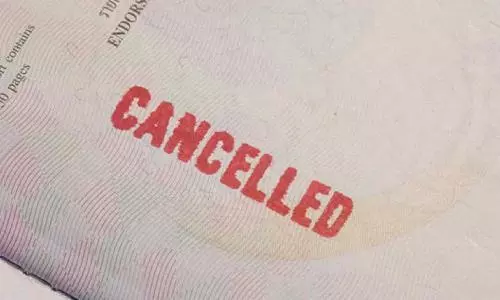
GST should be applied to oil taxes
text_fieldsThe skyrocketing prices of petroleum products have been causing widespread concern. Everything from family budget to industries is in crisis. Ever since the government abdicated price control powers, pure exploitation has been ruling the roost in the matter. Not only the oil distribution companies, but the centre-state governments too have been following anti-people policies in petroleum pricing.
The Goods and Services Tax (GST) was introduced as a system of a single integrated tax regime. However, when its reach and depth started affecting the people, the benefits that should have been derived from it were denied. The scene for this exploitation was set by excluding petroleum products - which bears the heaviest tax component - from the scope of GST. Be it the current NDA government or the preceding UPA front, or state governments, they are all united in that GST should not be applied to fuel prices. Although crude oil prices were falling in the international market, fuel prices were still going up in the country. At present, even diesel price is crossing the 70 rupee per litre mark, many parties have started arguing, presumably to assuage people's anger, that GST should be applied to petroleum prices too. The Congress claims to be on that side. The Centre say they are for it, and that it is the states that do not agree. When it comes to the states, they wash their hands off saying that the decision is not to be taken by them. In the middle of all this continuing confusion and concerns, the biggest legalized plunder of independent India, is moving forward unchecked.
Ever since NDA assumed power, the intensity of exploitation has increased, for within four years, petrol and diesel prices have reached record highs. In May 2014, international crude oil price was 106.85 dollars per barrel. In March 2018, it shrank to 63.80 dollars. (In the meantime, in 2016 it had fallen to as low as 28.08 dollars.) However, the price of petrol and diesel have kept increasing. As if in inverse proportion to international prices, when crude prices kept falling, the Centre and states consistently kept increasing taxes. By giving up the price control rights of the government and passing it to the oil distributing companies, not only were the people and the economy left to the mercy of corporates and the market, the government got into a position wherein it could use it as a milch cow with which it could make up for losses caused by the follies in economic policy.
In May 2014, the tax element in the price of petrol (as per figures of Delhi) was 47.3 per cent. Currently, this has gone up to 100 per cent. The tax for diesel has incraesed from 24.7 to 70 per cent. In India's neighbouring countries, these products are sold at lower prices. The authorities in India see oil prices as an easy way of making money without looking left or right. The subsidy for kerosene and cooking gas, which is currently 24,660 crore rupees, will incraese to 24,930 crore next year; the central government argues that to compensate for this, higher taxes are inevitable. Oil tax is also the easy solution for making good the loss in the banking sector resulting from the unpaid loans amounting to 9 lac crore rupees. And the state governments treat petroleum taxes as a panacea for revenue deficit resulting from policy deficiencies, extravagance or dwindling tax collection. When petrol price per litre was Rs 81.87 in Mumbai (5 April), in Delhi it was only 74.02 rupees, the difference being the tax imposed by respective states. (Kerala's falls somewhere between the two). In Maharashtra, petrol also attracts drought cess, although the state suffers from no drought! Kerala government is of the opinion that GST should be rationalised, but does not come out boldly enough to say that it should be applied to petroleum price. The reason: although absolutely unfair, it is an additional revenue item that is collected hundred per cent without much effort.
Bringing petrol-diesel taxes under GST is not only rational and fair, but also a right of the people. Given that the Centre or states are unlikely to be prepared for that, the people themselves have to come forward to get it done. There are counter arguments that the matter is complicated and that the economy will go topsy-turvy. However complicated and topsy turvy that may be, they will not be to the same extent as has affected people's lives now. What we should see happening range from awareness creation about unjust taxes to popular agitations. Fo, relief from exploitative tax is a legal right.























